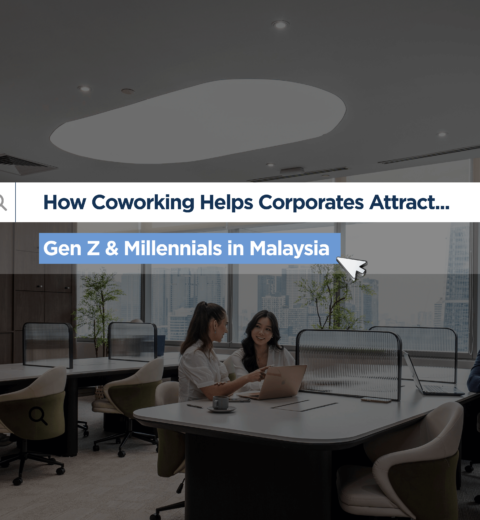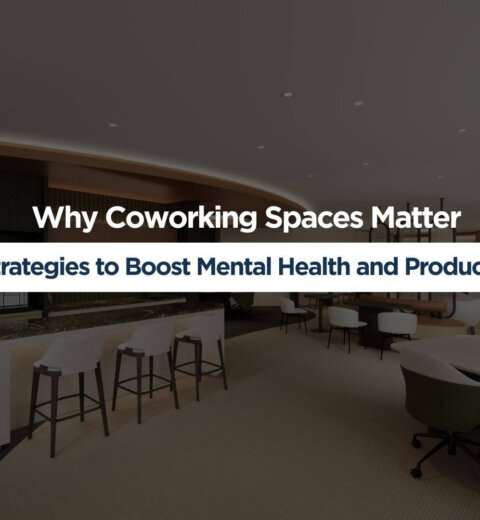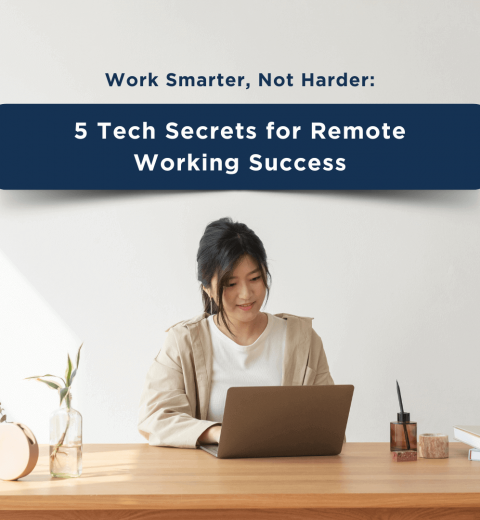As the professional landscape in Malaysia continues to evolve, the hybrid work model is no longer just a trend — it’s the new norm. With a growing number of companies adopting a hybrid working mode, balancing in-office and remote work is now a key factor in enhancing employee wellbeing and productivity.
What is a Hybrid Job?
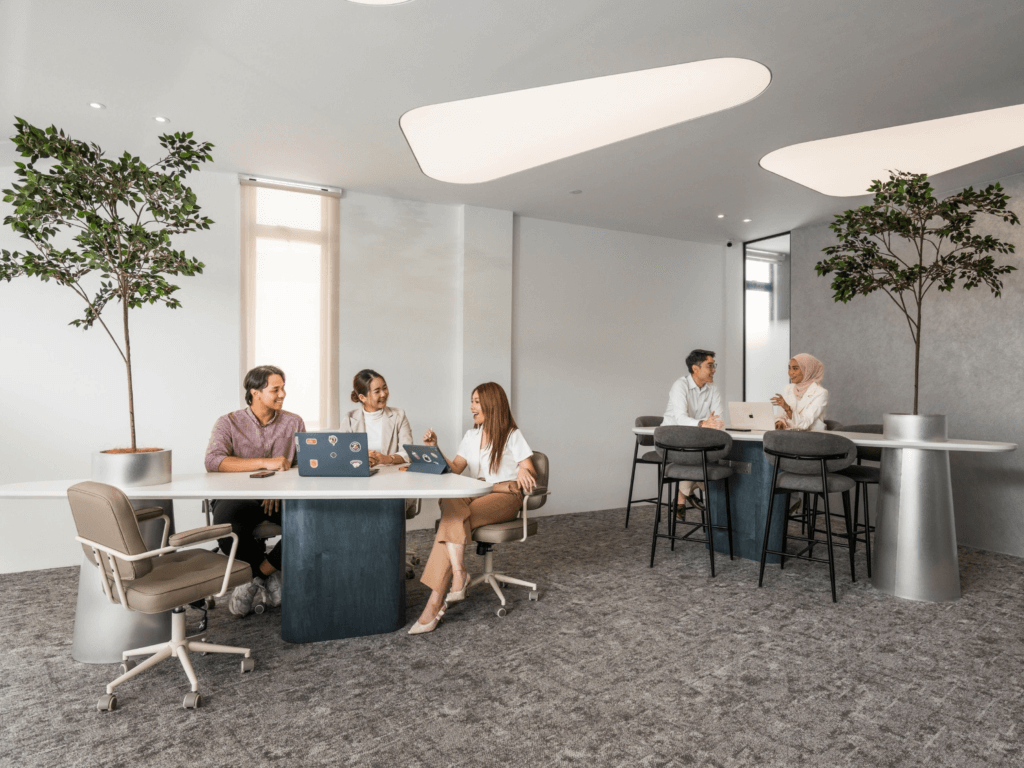
A hybrid job blends traditional office responsibilities with remote work flexibility. Instead of the rigid 9-to-5 schedule at a fixed location, employees can work part of the week from home and in the office. This hybrid model caters to business needs and the changing expectations of today’s workforce, particularly Millennials and Gen Z, who prioritise flexibility, autonomy, and wellbeing in the workplace.
The Shift Toward Hybrid Work in Malaysia

According to recent findings from JobStreet Malaysia and Randstad’s 2024 report, more than 70% of Malaysian employees express their preference for hybrid or flexible work arrangements. This shift is driven by the need for better work-life balance, reduced commuting time, and improved mental health.
Leading Malaysian employers like Maybank and PETRONAS have rolled out flexible work initiatives, offering remote days, condensed workweeks, and tech tools to support distributed teams. These companies reported increased employee satisfaction and decreased absenteeism after implementing hybrid structures.
Meanwhile, regional tech giant Shopee adopted a hybrid working mode to reduce operational costs while supporting team autonomy. Shopee found that productivity remained steady—or even increased—especially for roles focused on tech development, digital marketing, and project-based tasks.
How Hybrid Work Drives Productivity and Cuts Costs
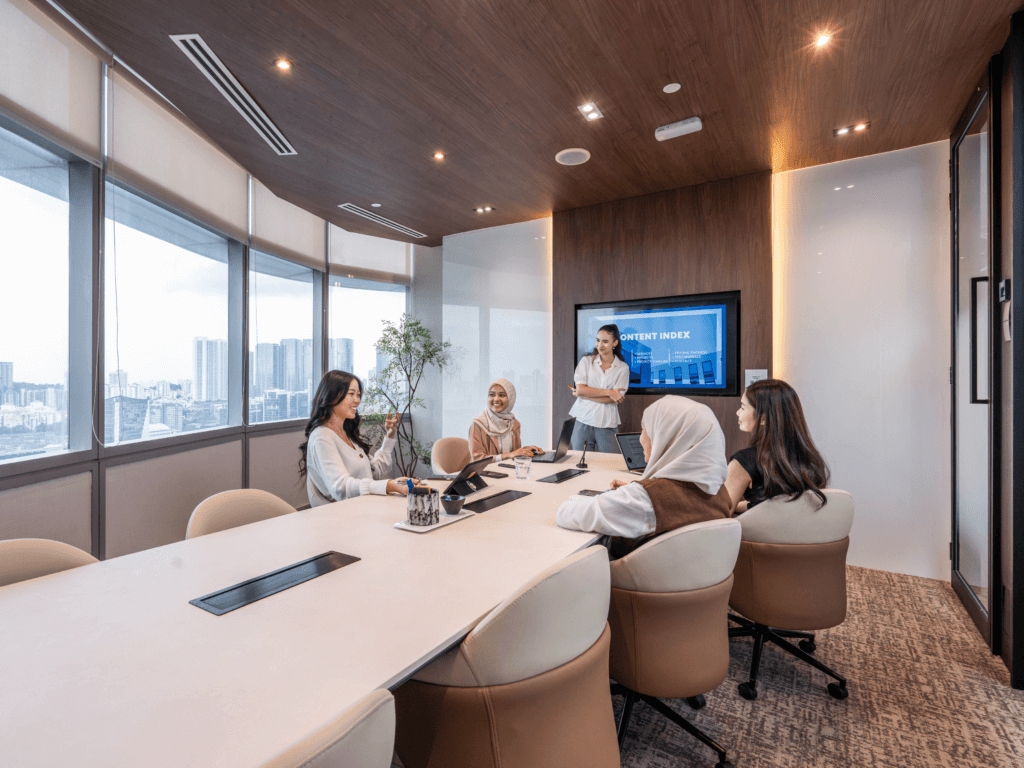
Companies embracing hybrid work are seeing tangible business benefits:
- Cost Reduction: A local insurance firm, Tune Protect, reduced its office space by 40% after going hybrid in 2022. This led to significant savings on rent, utilities, and office maintenance.
- Higher Productivity: Global research by Microsoft’s Work Trend Index supports local observations, showing that hybrid employees often log more focused hours and complete tasks faster. In Malaysia, companies report up to 15% higher productivity in roles like customer service, IT support, and content creation when working on flexible schedules.
- Lower Turnover: Firms that offer hybrid jobs see stronger employee retention. Some companies noted a decrease in turnover after giving staff the option to work remotely, along with flexible starting hours.
Why Hybrid Work Supports Employee Wellbeing
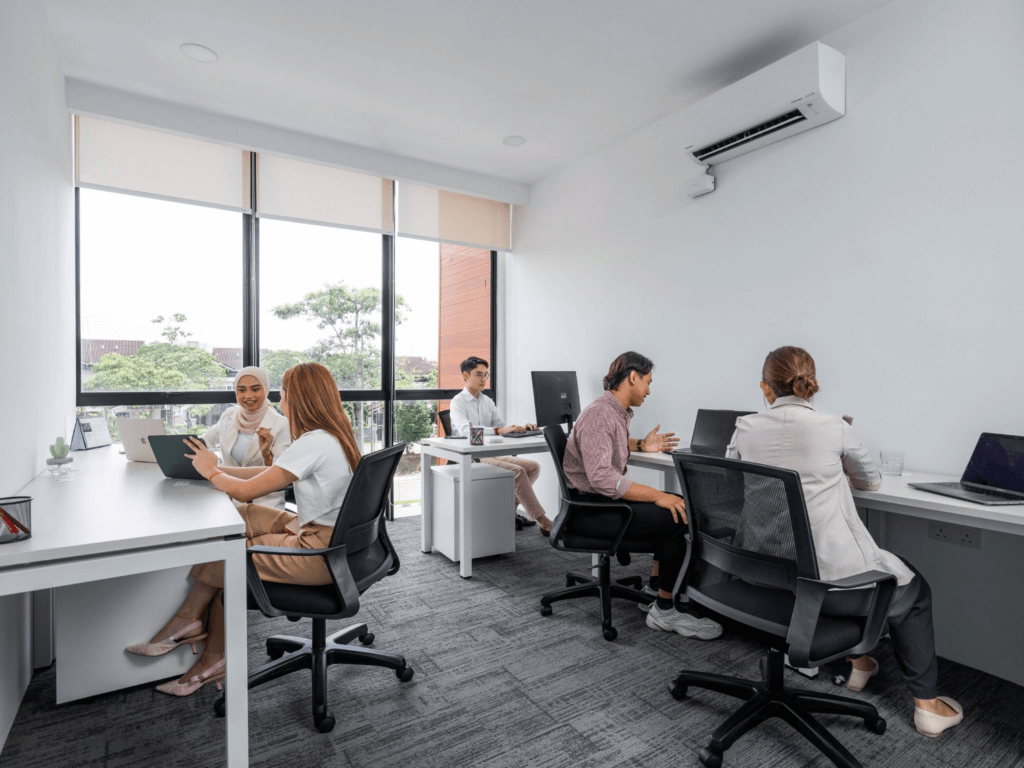
The conversation around employee wellbeing has gained momentum over the past few years, especially in response to rising stress and burnout. A rigid working environment can negatively impact mental and physical health, leading to decreased productivity and engagement.
The hybrid working mode allows employees to take greater control of their schedules. They can work from the comfort of their homes during focus-heavy tasks and return to the office for collaboration and team-building. This flexibility contributes significantly to well-being in the workplace, enabling employees to better manage stress, get enough rest, and stay connected with their families.
How to Overcome Common Challenges in the Hybrid Model

While the hybrid model offers many benefits, it also comes with its own set of challenges. Here’s how Malaysian businesses are addressing them:
1. Inequality in Access & Visibility
Challenge: Remote employees may feel left out of key decisions or miss networking opportunities.
Solution: Companies like Axiata introduced “virtual-first” meetings and equal participation protocols, ensuring remote workers are always included in discussions and visible in performance reviews.
2. Team Cohesion and Communication
Challenge: Collaboration can suffer when teams are not physically present.
Solution: Implement digital tools like Slack, Notion, and Microsoft Teams, and schedule regular in-person team days or off-site retreats. Many Malaysian firms now use monthly “sync days” where everyone is required to be onsite for brainstorming, planning, and bonding.
3. Monitoring Performance and Accountability
Challenge: Some managers struggle with trust and worry about output when employees are remote.
Solution: Shift from time-based to outcome-based performance metrics. Use project management tools like Asana or ClickUp to track deliverables. Provide adequate training to managers on leading remote teams and fostering trust.
4. Tech Infrastructure
Challenge: Not all employees have access to high-speed internet or proper equipment at home.
Solution: Companies like U Mobile offer home office stipends or provide essential hardware (laptops, routers, ergonomic chairs) to support remote productivity.
Enhancing Wellbeing in the Workplace Through Hybrid Work
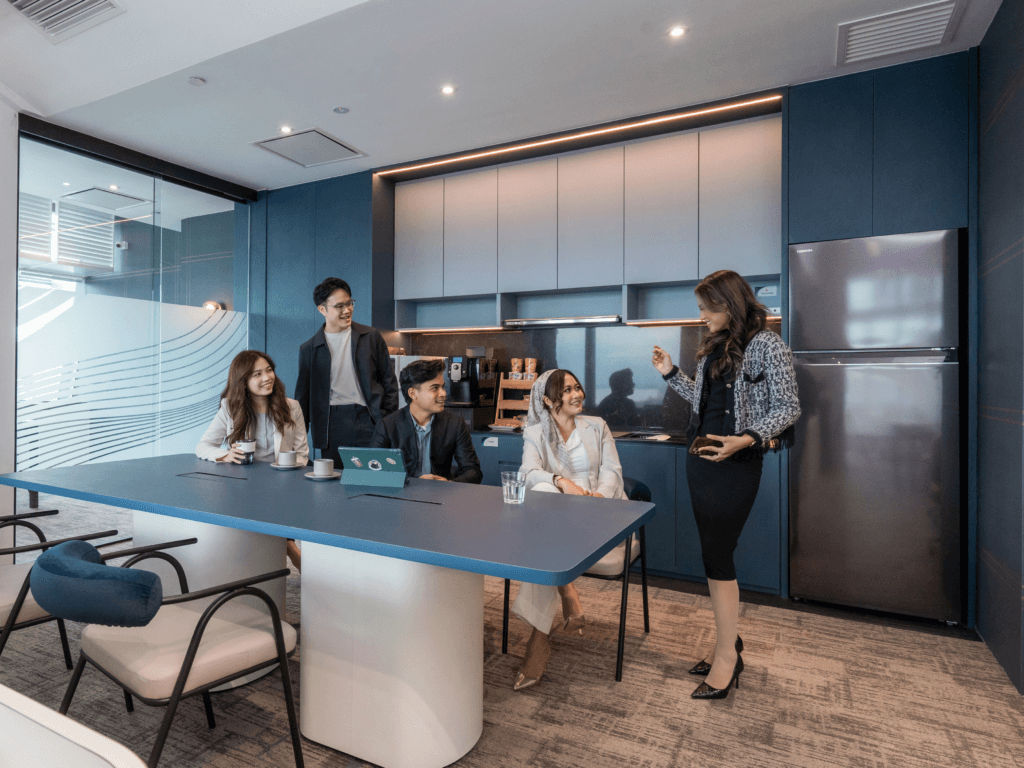
Forward-thinking Malaysian companies are also rethinking their approach to wellbeing in the workplace by offering:
- Flexible hours to accommodate personal commitments
- Mental health support, including virtual counselling
- Wellness programs like yoga, mindfulness, and fitness challenges
- Employee resource groups (ERGs) to build community and inclusion
- Regular check-ins to ensure workload and well-being are balanced
Integrating these initiatives into a hybrid work model creates an environment where employees feel supported, empowered, and motivated.
What’s Next for Hybrid Jobs in Malaysia?
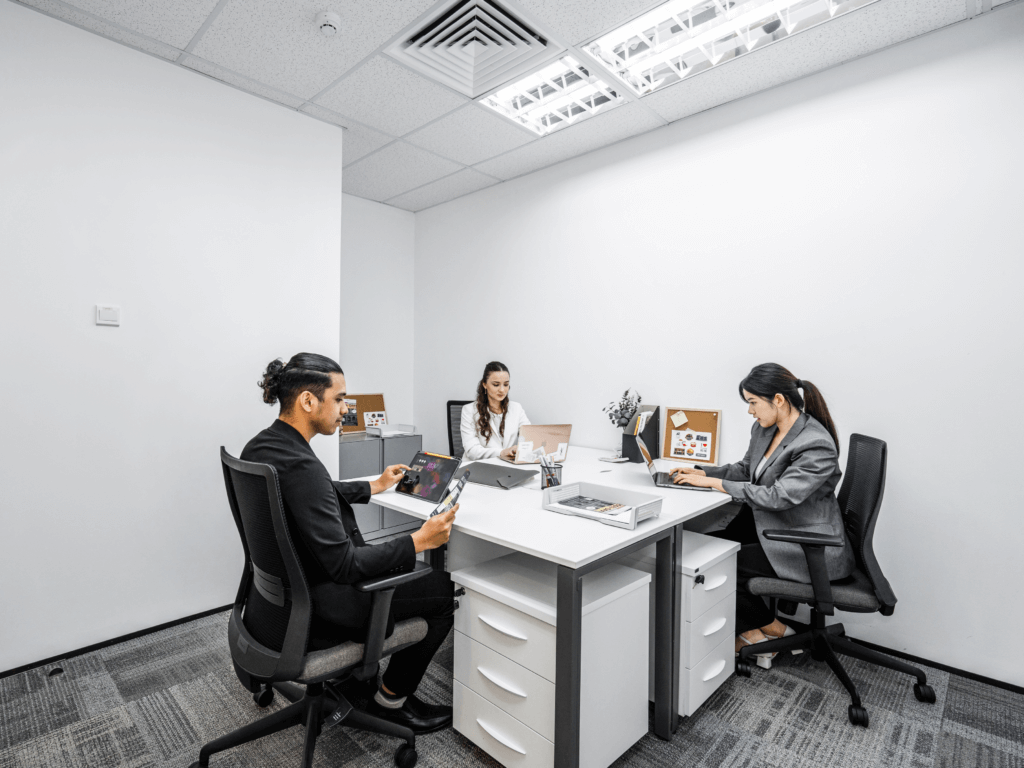
With global shifts in work preferences and Malaysia’s digital transformation push under initiatives like MyDIGITAL and the MADANI Economy Framework, hybrid jobs are expected to become more mainstream across industries, not just in tech and finance, but also in education, healthcare, and government sectors.
Employers who embrace the hybrid work model today are positioning themselves as forward-thinking, people-centric, and adaptable. More importantly, they recognise that employee well-being is no longer a perk — it’s a priority.
Ready to Embrace Hybrid Work? Talk to the Experts
If your organisation is considering adopting a hybrid work model or enhancing your approach to employee wellbeing, having the right partner can be a game-changer. INFINITY8 offers expert consultation services tailored to Malaysia’s fast-changing employment landscape. With deep insight into hybrid work, hybrid job structures, and well-being in the workplace, INFINITY8 can help you build a resilient and future-ready workforce.


